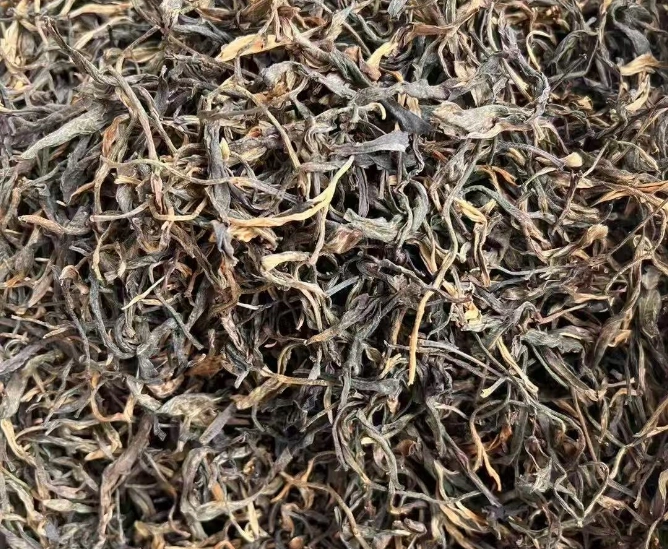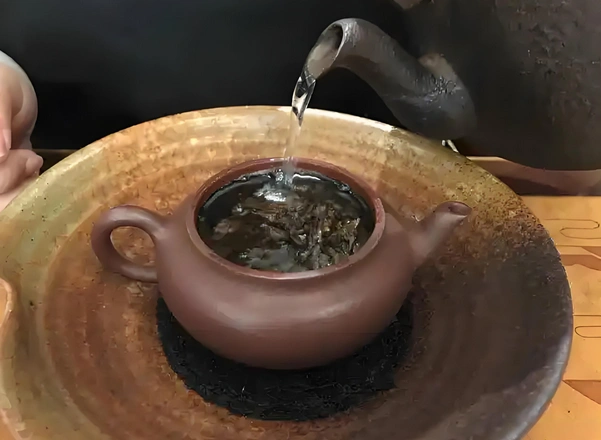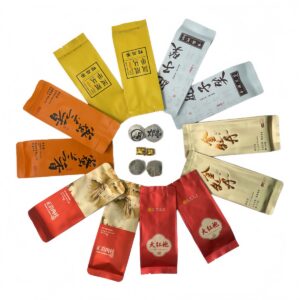Dark tea and liver health go hand in hand in an age where our bodies face daily detox challenges. Imagine cradling a warm cup of deep amber tea, its earthy aroma unfolding like misty forest floor after rain. Each velvety sip carries whispers of ancient fermentation, delivering gentle compounds that calm, cleanse, and nurture your liver.
In this article, we’ll explore how dark tea and liver health intertwine—uncovering the science, sensory pleasures, brewing rituals, and best varieties to make this time-honored beverage your ally in lifelong wellness.
Understanding the Liver’s Role in Detoxification
Your liver is a biochemical powerhouse, filtering toxins from food, alcohol, medications, and environmental exposures. It transforms harmful compounds into water-soluble forms for excretion, regulates blood sugar, and synthesizes vital proteins. However, modern diets high in processed fats and sugars can overburden this organ. Incorporating dark tea and liver health into your daily routine can provide gentle support, helping your liver maintain optimal performance.

What Is Dark Tea? Key Characteristics & Processing
Dark tea—known as Hei Cha in China—undergoes post-fermentation, setting it apart from green, black, and oolong teas. After initial oxidation, leaves are piled and moistened, encouraging beneficial microbes to convert catechins into complex theabrownins, organic acids, and polysaccharides. These transformations yield a tea with:
- Deep reddish-brown liquor that glows like warm mahogany.
- Earthy, woody aroma reminiscent of damp forest floor.
- Silky, rounded mouthfeel with subtle sweet and smoky notes.
This soulful depth defines dark tea and liver health, providing compounds that interact gently yet effectively with our body’s cleansing pathways.
Bioactive Compounds in Dark Tea That Benefit the Liver
Dark tea’s fermentation creates unique molecules that support liver function:
- Theabrownins – Powerful antioxidants that neutralize free radicals and reduce oxidative stress, a major contributor to liver damage.
- Organic Acids – Aid in lipid metabolism, helping the liver process fats and preventing fat accumulation in liver cells.
- Polysaccharides – Provide prebiotic effects, nurturing gut health and reducing inflammatory signals that burden the liver.
Together, these compounds make dark tea and liver health a synergistic partnership.
Dark Tea Detox Benefits: How It Aids Your Liver
Drinking dark tea triggers multiple detox pathways:
- Enhanced Phase II Enzymes: Studies suggest dark tea can upregulate liver enzymes like glutathione S-transferase, boosting your body’s ability to neutralize toxins.
- Lymphatic Drainage: Mild diuretic properties encourage fluid balance and toxin elimination.
- Cellular Protection: Antioxidants shield hepatocytes (liver cells) from damage, promoting longevity of this vital organ.
Enjoying dark tea and liver health as part of a balanced diet enhances your natural detox rhythm.

Dark Tea Digestion: Reducing Liver Strain After Meals
A heavy meal—especially high in fats—can challenge both digestion and liver function. Dark tea digestion benefits stem from fermentation-derived enzymes and organic acids that:
- Slow carbohydrate breakdown, smoothing blood sugar spikes.
- Emulsify fats, easing their processing by the liver.
- Stimulate bile production, aiding in fat digestion and reducing liver workload.
By sipping dark tea after meals, you help your liver work more efficiently while enjoying a soothing ritual.
Dark Tea After Oily Meals: Protecting Your Liver from Fat Overload
We all crave rich, indulgent dishes, but too much fat can accumulate in liver tissue over time. Dark tea after oily meals offers protective effects:
- Reduction of hepatic steatosis: Animal studies indicate habitual dark tea consumption can decrease fat buildup in the liver.
- Alleviation of post-meal lethargy: The gentle lift from moderate caffeine content refreshes without taxing your detox pathways.
Include a small cup of dark tea with or shortly after your fattiest meals to safeguard your liver.
Comparing Dark Tea vs. Oolong Tea for Liver Support
While oolong tea provides healthful antioxidants, dark tea and liver health enjoy an edge thanks to post-fermentation:
| Aspect | Oolong Tea | Dark Tea |
|---|---|---|
| Fermentation | Partial | Microbial post-fermentation & aging |
| Key Antioxidants | EGCG | Theabrownins |
| Fat Metabolism Support | Moderate | Strong (organic acids) |
| Depth of Flavor | Floral, fresh | Earthy, robust |
For liver-focused goals, dark tea’s unique compounds deliver more targeted support.
How to Brew Dark Tea for Maximum Liver Benefits
To extract dark tea and liver health compounds:
- Water Temperature: Heat to 95–98 °C (203–208 °F).
- Leaf-to-Water Ratio: Use 5–8 g leaves per 200 ml water.
- Rinse First: Flush leaves quickly to remove dust and awaken aroma.
- Steeping Time: Brew 3–5 minutes; longer infusions yield more antioxidants and organic acids.
- Multiple Infusions: Enjoy 3–4 steeps, adding 30 s per steep.
Sip mindfully—inhale the warm steam, savor the rich taste, and visualize your liver receiving nature’s gentle cleanse.

🔗 To learn more about how to make tea, check out Tanbiwencha’s YouTube video explaining how to make tea.
Recommended Dark Tea Varieties for Liver Health
1. Ripe Pu-erh (Shou Pu-erh)
This post-fermented classic is smooth, chocolatey, and rich in theabrownins and organic acids—ideal for detox rituals.
2. Aged Liubao Tea
Hailing from Guangxi, aged Liubao offers a malted sweetness and moderate tannins that comfort the stomach and support liver detox.
3. Fu Brick Tea (Fuzhuan Cha)
With its signature “golden flowers,” Fu Brick tea blends antimicrobial properties with layered flavors, making it a unique liver ally.
4. Anhua Dark Tea
This Hunan specialty provides gentle smokiness and robust antioxidants, perfect for daily liver maintenance.
Safety Considerations & When to Consult a Professional
While dark tea and liver health is generally safe, consider:
- Caffeine Sensitivity: Limit to 2–3 cups daily if prone to jitters or sleep disruption.
- Medication Interactions: Talk to your doctor if you’re on blood thinners or liver medications.
- Excess Tannins: Overconsumption can interfere with mineral absorption; balance with food.
Consult a healthcare professional if you have chronic liver conditions before changing your regimen.
Conclusion & Daily Ritual Recommendations
Embracing dark tea and liver health means weaving a simple yet powerful ritual into your day:
- Morning Kickstart: Begin with a cup of ripe Pu-erh to ignite detox pathways.
- Post-Meal Support: Sip aged Liubao after lunch or rich dinners.
- Evening Calm: Enjoy Fu Brick tea to unwind and nourish overnight repair.
Through intentional brewing and mindful sipping, dark tea becomes more than a drink—it’s a comforting ceremony of liver care, marrying ancient wisdom with modern wellness. Here’s to the warm embrace of dark tea and liver health, nurturing your body from the inside out.



